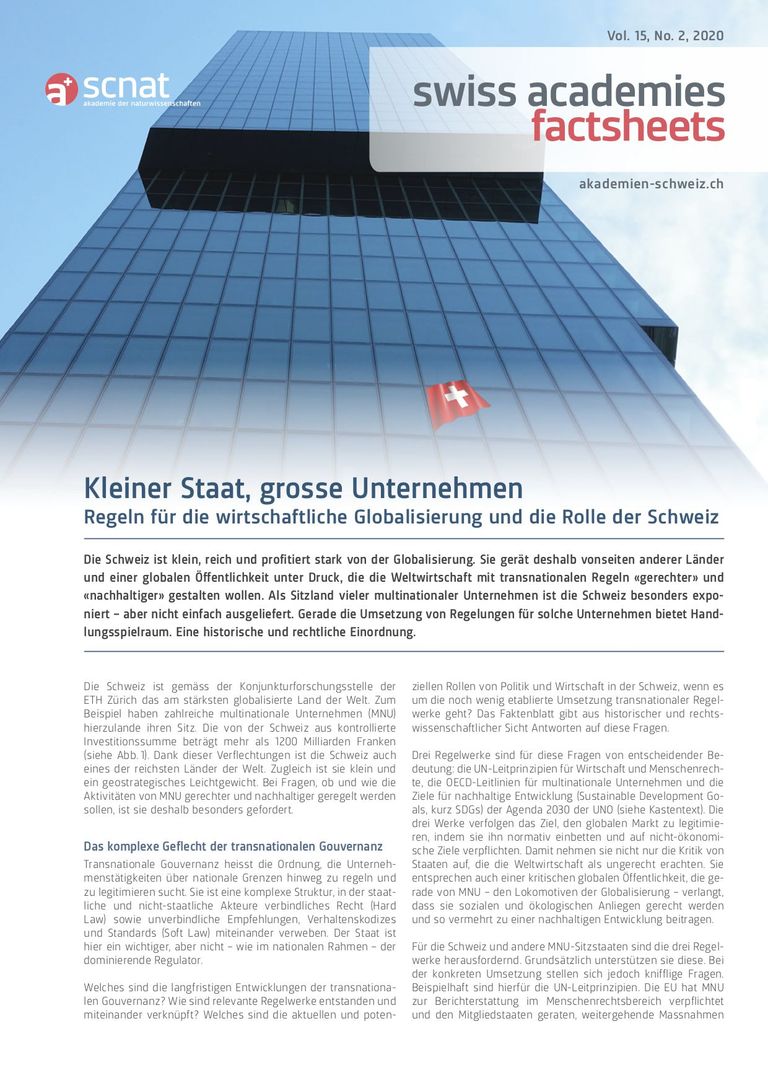Rules for economic globalization and the role of Switzerland
Switzerland is small, rich, and profits greatly from globalization. Consequently, it is under growing international and public pressure from those who wish to make the world economy “fairer” and “more sustainable” by means of transnational rules.

Home to many multinational companies, Switzerland is highly exposed to any such regulatory changes. Yet it need not assume a passive role. Indeed, the very process of implementing rules for multinational companies provides valuable scope for action. This factsheet developed under the lead of KFPE, and written by Alex Gertschen historian at the Center for Global Studies, University of Bern, and Elisabeth Bürgi-Bonanomi, legal scientist at the Centre for Development and Environment, University of Bern, places the issue in a historical and legal context.
Switzerland, a small country with considerable power to shape the future
Going forward, Switzerland will be increasingly confronted with heightened regulatory issues relating to its international business activities. Emerging regulations may accommodate or defy the specific interests of particular domestic actors. In principle, transnational governance frameworks that legitimate the global market in line with Western ideas stand to benefit Switzerland as a business location and a community of values. Whether our country decides to view itself primarily as a small state and a passively affected party or as an economic power and an active shaper of future developments is largely a po- litical question. At the same time, this question is complicated by the fact that growing demands for nation states to assume responsibility for “their” MNEs are occurring simultaneously with the denationalization of market forces.
Existing law offers scope for action, as the implementation of transnational guidelines in the area of corporate responsibili- ty is not yet well-established. This affords Switzerland an opportunity to independently apply the concept of due diligence in various legal areas, arriving at viable solutions by carefully weighing diverse public interests. Such a process always in- volves finding out how sector-specific efforts towards “due dil- igence” are best complemented, encouraged, and enforced. In addition to civil law and liability law, this also concerns other legal areas less prominent in the debate. All countries, not just Switzerland, currently face the task of adjusting existing national rules so as to promote sustainable development world-wide. In doing so, as both a small country and a global “economic power”, Switzerland can make an important contribution to 21st-century transnational governance.
Contact
Dr. Fabian Käser
SCNAT
Commission for Research Partnerships with Developing Countries (KFPE)
House of Academies
PO Box
3001 Bern
Switzerland




